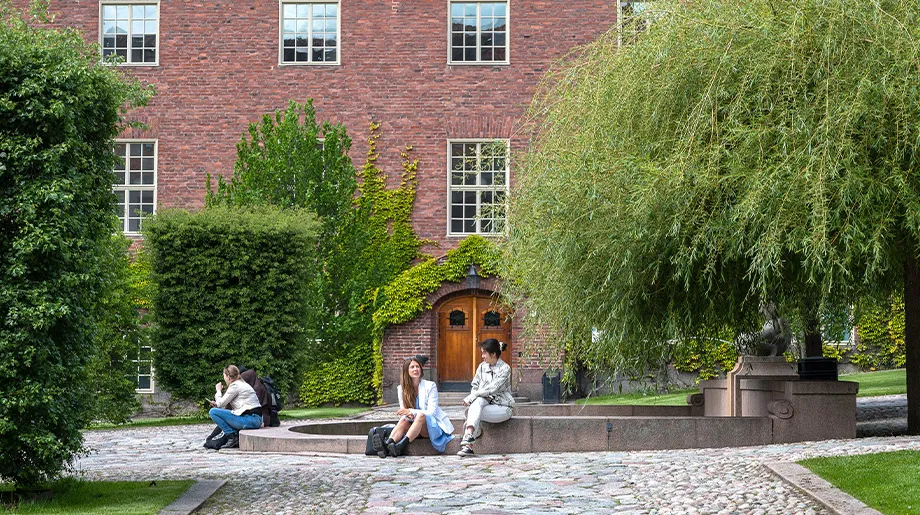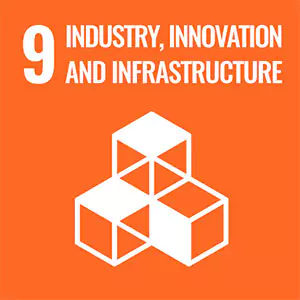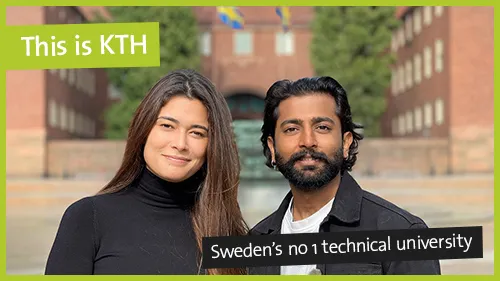MSc Environmental Engineering and Sustainable Infrastructure
The master's programme in Environmental Engineering and Sustainable Infrastructure equips students with interdisciplinary tools to solve future environmental challenges and prepares them for careers as environmental engineers. You will gain knowledge of the properties and functions of water and ecosystems, learn how to assess the local and global environmental impact of human activities and apply advanced methods and modelling tools to define and solve environmental problems.

Environmental Engineering and Sustainable Infrastructure at KTH
In a world facing urgent challenges such as climate change, water scarcity, and rapid urbanisation, the master’s programme in Environmental Engineering and Sustainable Infrastructure equips students with the interdisciplinary skills to build sustainable solutions. The programme does not follow fixed tracks, offering you significant freedom to choose courses that suit your interests, provided you meet the specific course prerequisites. To help guide your choices, you can select one of seven competence profiles, each containing a sequence of courses designed to build a coherent knowledge base aligned with your career goals. The competence profiles are:
-
Water Technology: water systems, hydropower, the effects of climate change
-
Environmental Geology and Hydrogeology: contaminated sites, environmental geology, and geotechnical aspects
-
Water and Wastewater Technology: managing drinking water and wastewater
-
Environmental Information Analysis and Management: environmental monitoring and measurement techniques
-
Sustainable Infrastructure: managing infrastructure and resources sustainably
-
Environmental Systems Analysis: environmental systems and life cycle analysis
-
Sustainable Societies: social and economic factors influencing sustainability
Explore the competence profiles in the course list
The courses offered within the programme are based on a combination of theoretical and practical approaches, both in the field and laboratory, using tools such as GIS, different computer models, and tools for decision support. For instance, students might conduct fieldwork using geophysical survey techniques to determine underground rock mass properties, use GIS to visualise various environmental datasets or use numerical models to evaluate water management under climate change scenarios. Students gain practical skills in tools like ArcGIS Pro, SWMM for geophysical and hydrological modelling, and SimaPro for life cycle assessment.
The programme ends with a degree project that allows you to thoroughly investigate a problem, under the supervision of experienced practitioners and researchers. The topic for the degree project should be within the programme's scope and relate to knowledge acquired through the courses. The degree project is carried out in Sweden or abroad and can be oriented towards research, technological development at a company or organisation, or a combination of both.
This is a two-year programme (120 ECTS credits) given in English. Graduates are awarded the degree of Master of Science. The programme is given mainly at KTH Campus in Stockholm by the School of Architecture and Built Environment (at KTH).
Courses in the programme
The courses in the programme cover topics such as water technology, environmental geotechnology, water and wastewater engineering, environmental management and information, sustainable infrastructure, environmental systems analysis and sustainable societies.
Courses in the programme Environmental Engineering
Future and career
Our society faces significant challenges in managing a changing climate, ensuring good water quality, creating systems for recycling materials and nutrients, and developing renewable and environmentally sustainable energy solutions. Therefore, the demand for environmental engineering expertise is nearly unlimited, and the job market is diverse. Graduates are increasingly sought after in fields like climate adaptation planning, blue-green infrastructure, circular economy systems, nature-based solutions and ESG consulting. Graduates will be able to work in both the private and public sectors, including environmental consultancies, with contractors, water and wastewater companies, or government agencies, both in Sweden and abroad. Examples of employers for programme graduates include SWECO, Stockholm Vatten, WSP, Swedish EPA, Tyréns, Geosigma, COWI, Vattenfall, SIDA, and several international organisations. Some graduates from the programme also go on to doctoral studies at KTH or other universities worldwide.
Sustainable development
Graduates from KTH have the knowledge and tools for moving society in a more sustainable direction, as sustainable development is an integral part of all programmes. The three key sustainable development goals addressed by the master's programme in Environmental Engineering and Sustainable Infrastructure are:



The programme is transdisciplinary and includes courses that build on natural science and technology, as well as courses that build on social science and planning. Therefore, it covers, to varying degrees, several of the sustainable development goals. The extent of this depends on the courses you choose. Courses in the Water and Wastewater Engineering profile will address goal 6 from a primarily technical point of view. Combined with courses from the Sustainable Infrastructure profile, you will also acquire the skills to address the goal from a social and planning perspective. Several opportunities to make such combinations are available based on your preferences, and allow for addressing the SDGs Clean Water and Sanitation, Industry, Innovation and Infrastructure (with an emphasis on Infrastructure) and Sustainable Cities and Communities. Depending on your choice of courses, you can acquire the skills to work as an environmental coordinator, urban water planner, geotechnical engineer or researcher and contribute to reaching the sustainable development goals.
Faculty and research
The master's programme is situated at SEED (Sustainable Development, Environmental Science and Engineering) at the School of Architecture and the Built Environment at KTH. The department performs research in several areas connected to sustainability, for example, Environmental Engineering, Environmental Modelling, Sustainability Assessment and Management, Water and Waste Management and Industrial Ecology.
Some examples of relevant research from researchers involved in the programme are:
- Testbed Storsudret for the development of sustainable water management systems. Lack of fresh water for drinking and agriculture is today one of the world's greatest challenges. The project comprises the establishment of infrastructure at Storsudret (on the island of Gotland), where systems for water supply in a rural and agricultural area will be tested. KTH contributes to testing different methods and models for recharging and storing groundwater, including testing and developing analysis tool-packages.
- The R&D facility Hammarby Sjöstadsverk is a platform for developing and exchanging knowledge and technologies in water treatment and related environmental technology. It is used for both long-term national and international research programs/projects and consultancy, testing and development for the industry and other partners. Hammarby Sjöstadsverk is Sweden's leading and internationally known R&D facility in water purification technology.
- Development of affordable adsorbent systems for arsenic and fluoride removal in the drinking water sources in Tanzania (DAFWAT). In this study, investigation and optimisation of low-cost affordable adsorbents to remove fluoride and Arsenic from water will be perfected at laboratory scale, and a pilot water defluoridation plant will be constructed and tested.
- ISSUE (Integrating Sustainability Strategies in Urban Environments). The project aims to develop innovative strategies to support sustainable development in urban and peri-urban areas, advance knowledge regarding sustainability through multi-stakeholder collaboration and analyse future developments.
- Mistra Sustainable Consumption will examine niche sustainable consumption practices and develop roadmaps for how they can be scaled up and mainstreamed by policymakers, businesses, civil society organisations and citizen-consumers.







